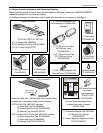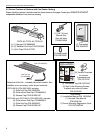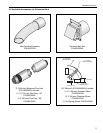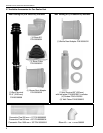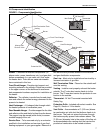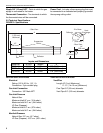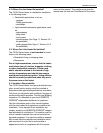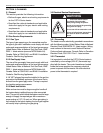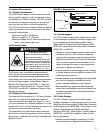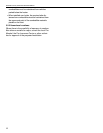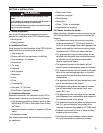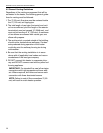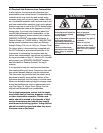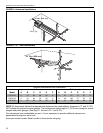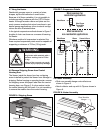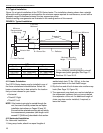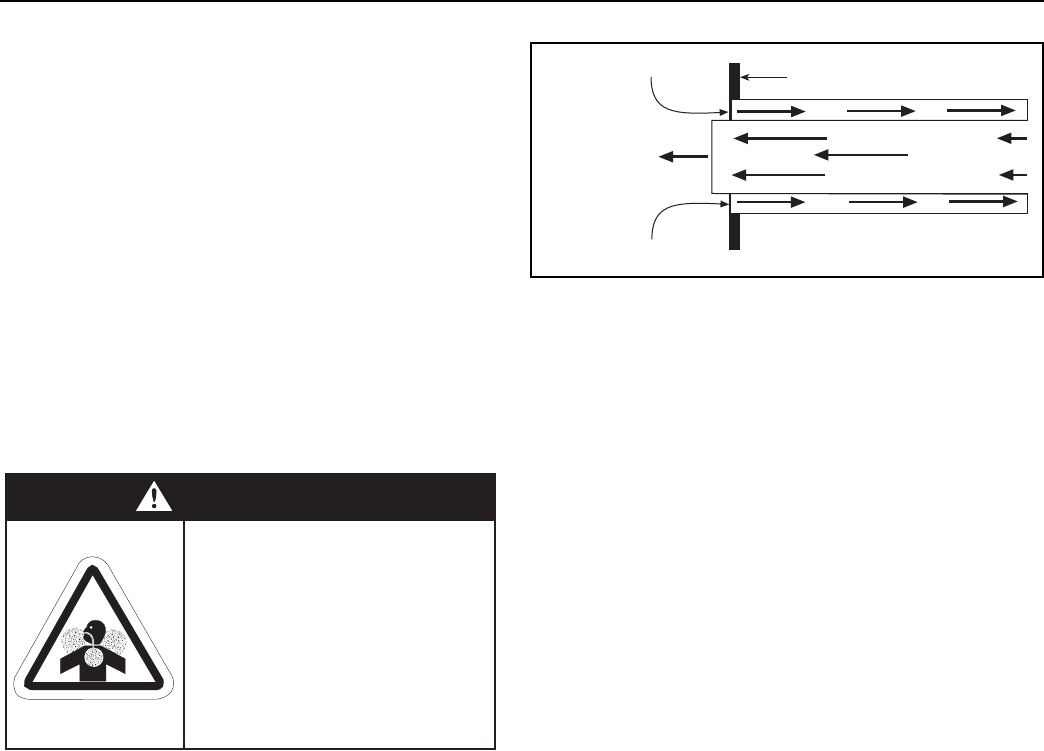
SECTION 3: PLANNING
11
3.4 Venting Requirements
3.4.1 System Requirements
The CGTH-Series heater must be installed with the
venting system supplied or with the optional venting
kit available from Roberts-Gordon. DO NOT connect
this heater to a separate chimney and do not com-
mon vent with any other fuel burning appliance.
The CGTH-Series heater employs a balanced flue/air
venting duct system and must conform to the follow-
ing length requirements:
Maximum Length:10' (3048 mm)
Minimum Length:2' - 6" (760 mm)
Maximum Elbows:Two (2) with natural gas units,
one (1) with propane gas units
3.4.2 Venting Codes
The location, size, installation and termination of
vents, as well as the required safe distances from
combustibles when penetrating combustible walls,
must comply with local codes and recommendations
of the local gas company. United States: Refer to
National Fuel Gas Code, ANSI Z223.1 - latest revi-
sion (same as NFPA Bulletin 54). Canada: Refer to
CSA B149.1 and B149.2: Installation Codes for Gas
Burning Appliances.
3.4.3 Balanced Flue Construction
The balanced flue consists of a 3" (80 mm) diameter
flue which is concentrically positioned inside a 5"
(125 mm) diameter vent pipe (See Figure 3). The 5"
(125 mm) diameter vent supplies outside air for com-
bustion while the 3" (80 mm) diameter flue carries the
products of combustion from the heater.
The balanced flue is applicable for both horizontal
and vertical venting arrangements. Vertical venting
will require the optional roof venting kit available from
Roberts-Gordon.
FIGURE 3: Balanced Flue
3.5 Non-Residential Installations
3.5.1 Aircraft Hangars
The CGTH-Series heater may be used in certain areas
of aircraft hangars. Installation in aircraft hangars must
be in accordance with the following codes: United
States: Refer to Standard for Aircraft Hangars, ANSI/
NFPA-409 - latest revision. Canada: Refer to Standard
CSA B149.1 and B149.2.
• Heaters in aircraft storage or service areas must be
installed a minimum of 10' (3048 mm) above the
upper surface of wings or engine enclosures of the
highest aircraft which may be housed in the hangar.
(This should be measured from the bottom of the
heater to the top of the wing, or engine enclosure,
whichever is highest from the floor).
• In other sections of aircraft hangars, such as shops
or offices, heaters must be installed a minimum of 8'
(2438 mm) above the floor.
• Heaters installed in aircraft hangars shall be located
so as not to be subject to damage by aircraft,
cranes, movable scaffolding or other objects.
• When installed over hoists, the required safe dis-
tances from combustibles must be maintained from
the uppermost point of the combustible materials
placed on the hoist.
3.5.2 Public Garages
The CGTH-Series heater may be used in public
garages. Installation in public garages must be in accor-
dance with the following codes: United States: Standard
for Parking Structures NFPA-88A - latest revision or the
Code for Fuel Dispensing Facilities and Repair
Garages, NFPA-30A - latest revision. Canada: Refer to
CSA B149.1 and B149.2: Installation Codes for Gas
Burning Appliances.
• Heaters must be installed a minimum of 8' (2438
mm) above the floor. Required safe distances to
Carbon Monoxide Hazard
Heater must be exhausted outside.
Use materials supplied.
This heater needs fresh air for safe
operation and must be installed so
there are provisions for adequate
combustion and ventilation air.
Failure to follow these instructions
can result in death or injury.
WARNING
Exterior Wall
Exhaust
Outside Air
Exhaust
Outside Air



